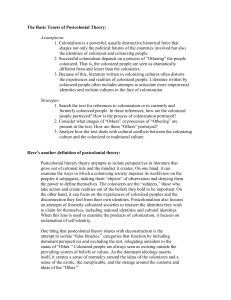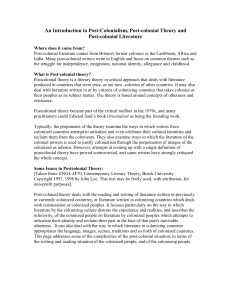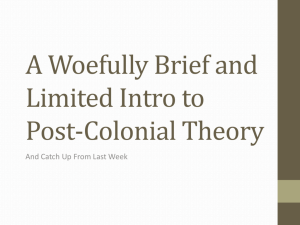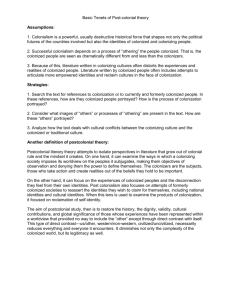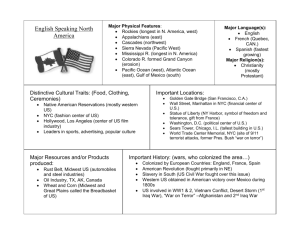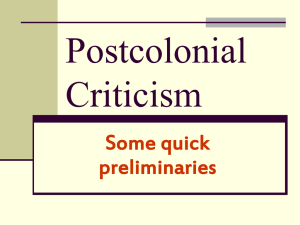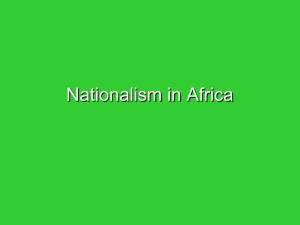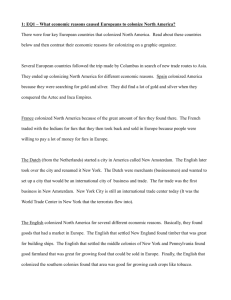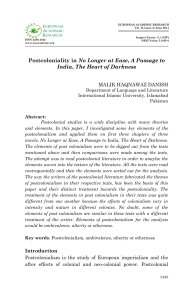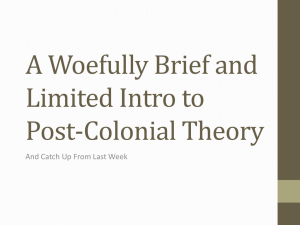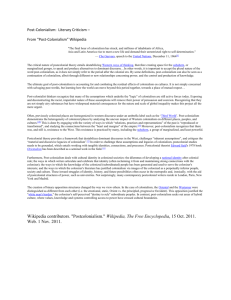Some Issues in Postcolonial Theory
advertisement
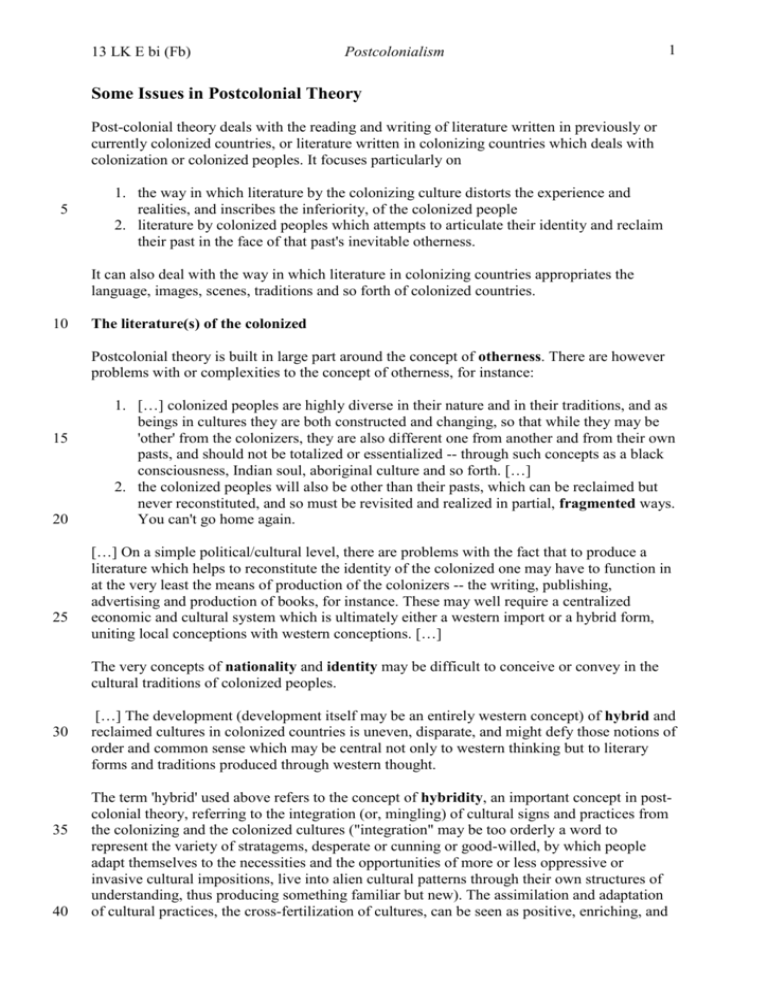
13 LK E bi (Fb) Postcolonialism 1 Some Issues in Postcolonial Theory Post-colonial theory deals with the reading and writing of literature written in previously or currently colonized countries, or literature written in colonizing countries which deals with colonization or colonized peoples. It focuses particularly on 5 1. the way in which literature by the colonizing culture distorts the experience and realities, and inscribes the inferiority, of the colonized people 2. literature by colonized peoples which attempts to articulate their identity and reclaim their past in the face of that past's inevitable otherness. It can also deal with the way in which literature in colonizing countries appropriates the language, images, scenes, traditions and so forth of colonized countries. 10 The literature(s) of the colonized Postcolonial theory is built in large part around the concept of otherness. There are however problems with or complexities to the concept of otherness, for instance: 15 20 25 1. […] colonized peoples are highly diverse in their nature and in their traditions, and as beings in cultures they are both constructed and changing, so that while they may be 'other' from the colonizers, they are also different one from another and from their own pasts, and should not be totalized or essentialized -- through such concepts as a black consciousness, Indian soul, aboriginal culture and so forth. […] 2. the colonized peoples will also be other than their pasts, which can be reclaimed but never reconstituted, and so must be revisited and realized in partial, fragmented ways. You can't go home again. […] On a simple political/cultural level, there are problems with the fact that to produce a literature which helps to reconstitute the identity of the colonized one may have to function in at the very least the means of production of the colonizers -- the writing, publishing, advertising and production of books, for instance. These may well require a centralized economic and cultural system which is ultimately either a western import or a hybrid form, uniting local conceptions with western conceptions. […] The very concepts of nationality and identity may be difficult to conceive or convey in the cultural traditions of colonized peoples. 30 35 40 […] The development (development itself may be an entirely western concept) of hybrid and reclaimed cultures in colonized countries is uneven, disparate, and might defy those notions of order and common sense which may be central not only to western thinking but to literary forms and traditions produced through western thought. The term 'hybrid' used above refers to the concept of hybridity, an important concept in postcolonial theory, referring to the integration (or, mingling) of cultural signs and practices from the colonizing and the colonized cultures ("integration" may be too orderly a word to represent the variety of stratagems, desperate or cunning or good-willed, by which people adapt themselves to the necessities and the opportunities of more or less oppressive or invasive cultural impositions, live into alien cultural patterns through their own structures of understanding, thus producing something familiar but new). The assimilation and adaptation of cultural practices, the cross-fertilization of cultures, can be seen as positive, enriching, and 13 LK E bi (Fb) Postcolonialism 2 dynamic, as well as as oppressive. "Hybridity" is also a useful concept for helping to break down the false sense that colonized cultures -- or colonizing cultures for that matter -- are monolithic, or have essential, unchanging features. […] The literature(s) of the colonists: 45 50 55 60 65 In addition to the post-colonial literature of the colonized, there exists as well the postcolonial literature of the colonizers. As people of British heritage moved into new landscapes, established new founding national myths, and struggled to define their own national literature against the force and tradition of the British tradition, they themselves, although of British or European heritage, ultimately encountered the originating traditions as Other, a tradition and a writing to define oneself against (or, which amounts to the same thing, to equal or surpass). Every colony had an emerging literature which was an imitation of but differed from the central British tradition, which articulated in local terms the myths and experience of a new culture, and which expressed that new culture as, to an extent, divergent from and even opposed to the culture of the "home", or colonizing, nation. The colonizers largely inhabited countries which absorbed the peoples of a number of other heritages and cultures (through immigration, migration, the forced mingling of differing local cultures, etc.), and in doing so often adapted to use the myths, symbols and definitions of various traditions. In this way as well the literature of the hitherto colonizers becomes 'postcolonial'. (It is curiously the case that British literature itself has been colonized by colonial/postcolonial writers writing in Britain out of colonial experiences and a colonial past.) In this regard a salient difference between colonialist literature (literature written by colonizers, in the colonized country, on the model of the "home" country and often for the home country as an audience) and post-colonial literature, is that colonialist literature is an attempt to replicate, continue, equal, the original tradition, to write in accord with British standards; postcolonial literature is often (but not inevitably) self-consciously a literature of otherness and resistance, and is written out of the specific local experience. Taken from: http://www.www.brocku.ca/english/courses/4F70/postcol.php Your tasks: Explain the following terms in your own words: (1) concept of otherness, (2) fragmentation, (3) hybridity.
